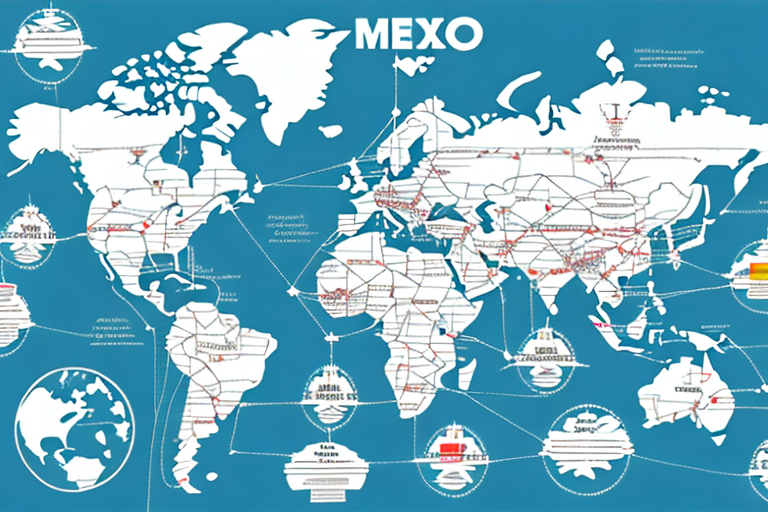Comparing FedEx Home Delivery and USPS Priority: Which Is the Better Option?
When it comes to shipping packages within the United States, choosing the right carrier can significantly impact your delivery experience. Two of the most prominent options are FedEx Home Delivery and USPS Priority Mail. Each service offers unique advantages and potential drawbacks, making it essential to understand their differences to make an informed decision that best suits your shipping needs.
Cost Comparison
FedEx Home Delivery Pricing
FedEx Home Delivery generally charges higher rates for smaller packages compared to USPS Priority Mail. However, for larger or heavier shipments, FedEx can be more cost-effective. Businesses that ship frequently may benefit from FedEx's discounted rates, making it a favorable choice for e-commerce operations. Additionally, FedEx offers various pricing tiers based on delivery speed and package dimensions.
USPS Priority Mail Pricing
USPS Priority Mail is often more affordable for smaller packages, with flat-rate boxes providing a cost-effective solution for heavier items up to 70 pounds. The flat-rate option simplifies pricing by allowing customers to ship packages at a predetermined rate regardless of weight or distance, provided the items fit within the specified box sizes.
According to the United States Postal Service, the average cost for USPS Priority Mail starts at $8.70 for small flat-rate packages, which can be more economical for users with consistent shipping volumes.
Shipping Speed and Reliability
FedEx Home Delivery Speeds
FedEx Home Delivery offers multiple shipping speed options, including standard (1-5 business days), 2-day, and overnight delivery. The service boasts a high reliability rate, with an on-time delivery performance of approximately 98.5% as reported by NRDC.
USPS Priority Mail Speeds
USPS Priority Mail typically provides delivery within 1-3 business days. While slightly longer than FedEx's premium options, USPS Priority remains a competitive choice for timely deliveries. The service maintains an on-time delivery rate of around 96.5%, making it a reliable option for most shipping needs.
Both carriers strive to meet delivery expectations, but FedEx may offer a slight edge in guaranteed delivery dates, especially with its overnight service.
Tracking and Delivery Options
FedEx Home Delivery Tracking
FedEx provides comprehensive tracking features, including real-time updates at each delivery checkpoint. Customers can access detailed tracking information through the FedEx Tracking portal. Additionally, FedEx offers delivery options such as signature confirmation and the ability to hold packages at FedEx locations.
USPS Priority Mail Tracking
USPS Priority Mail includes tracking and delivery confirmation services. Customers can monitor their packages via the USPS Tracking system. The service also allows for features like scheduled redelivery and package pickup at local USPS facilities if the recipient is unavailable to sign for the package.
Shipping Insurance
Both FedEx and USPS offer shipping insurance to protect valuable items during transit. FedEx includes automatic insurance for packages valued up to $100, with additional coverage available for purchase. USPS Priority Mail provides $50 of insurance per package, with options to buy extra protection for higher-value shipments.
Customer Service
FedEx Customer Support
FedEx is renowned for its exceptional customer service, offering support through various channels, including phone, email, and live chat. Their online support center provides extensive resources to assist customers with shipping issues, tracking inquiries, and account management.
USPS Customer Support
The United States Postal Service provides customer service via phone and email, along with a comprehensive online help center. While USPS support is generally reliable, customers may experience longer wait times during peak shipping periods.
Both carriers aim to provide effective customer assistance, but FedEx's 24/7 support availability may offer greater convenience for urgent inquiries.
International Shipping and Packaging
FedEx International Shipping
FedEx offers a variety of international shipping options with faster delivery times and more streamlined customs clearance processes. Services like FedEx International Priority ensure packages reach over 220 countries within 1-3 business days.
USPS International Shipping
USPS Priority Mail International is a more affordable option for sending packages to over 190 countries. While delivery times are generally longer than FedEx's offerings, the service is suitable for less urgent shipments. USPS also provides flat-rate international boxes, simplifying costs for international shipping.
Proper packaging is crucial for international shipments. Both FedEx and USPS have specific guidelines to ensure packages meet international standards, including labeling requirements and prohibited item restrictions.
Pros and Cons
FedEx Home Delivery
- Advantages: Fast shipping options, high reliability, comprehensive tracking, excellent customer service, and extensive international coverage.
- Disadvantages: Higher costs for smaller packages and infrequent shippers.
USPS Priority Mail
- Advantages: Cost-effective for smaller and heavy packages, flat-rate pricing, wide delivery network, and convenient postal locations.
- Disadvantages: Slightly lower on-time delivery rates and longer delivery times for non-priority services.
Conclusion
Choosing between FedEx Home Delivery and USPS Priority Mail depends largely on your specific shipping needs. If speed, reliability, and comprehensive customer support are your top priorities, FedEx Home Delivery may be the better choice despite its higher cost. On the other hand, if you seek affordability and are shipping smaller or heavier packages within standard delivery times, USPS Priority Mail offers a compelling option.
Consider factors such as package size, weight, delivery speed, cost, tracking requirements, and your budget when making your decision. By evaluating these aspects and understanding the strengths and limitations of each carrier, you can select the shipping service that best aligns with your business or personal shipping requirements.








